Taylor Otwell‘s journey with Laravel represents one of the most remarkable organic growth stories in modern software development. What began as a simple collection of personal productivity tools has blossomed into the most popular PHP framework worldwide, demonstrating that authentic problem-solving and community focus can trump Silicon Valley hype cycles.
The Laravel ecosystem today powers everything from scrappy startups to Fortune 500 companies, processing over a quarter million downloads daily. Yet its origins couldn’t be more humble – a self-taught developer in rural Arkansas solving his own workflow frustrations. This case study explores how technical excellence married with product philosophy created a framework that captured developer hearts globally.
Laravel (Website): laravel.com
Taylor Otwell (X): @taylorotwell
Taylor Otwell (LinkedIn): @taylorotwell
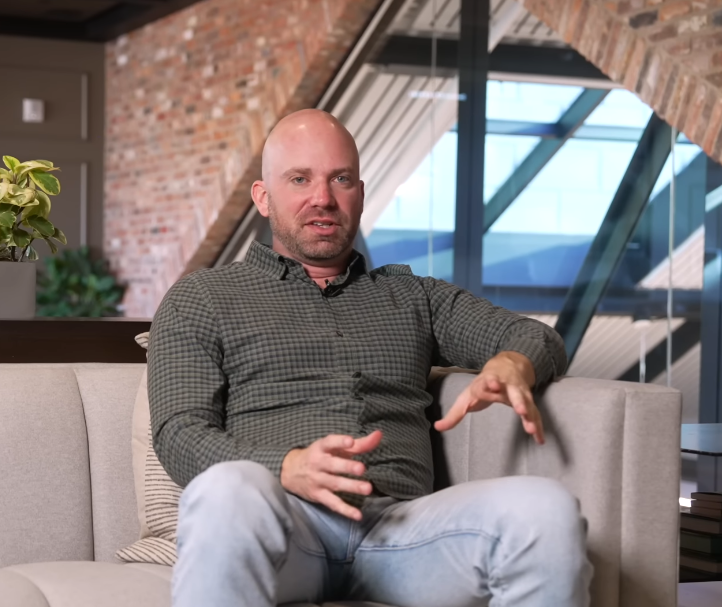
Otwell’s path defies conventional startup wisdom. He ignored the siren call of trendier languages, resisted monetization until the community demanded it, and maintained fanatical focus on his core audience even as Laravel scaled. The result? A self-sustaining ecosystem where commercial products naturally emerged from genuine user needs rather than corporate roadmaps.
The Small-Town Coder Who Saw PHP Differently
Growing Up in Hot Springs, Arkansas: The Unlikely Birthplace of a Tech Revolution
Taylor Otwell’s background reads like something from a tech industry fairy tale. In Hot Springs, Arkansas – a town better known for its thermal baths than its tech scene – a young Otwell found himself drawn to computers at a time when most of his peers focused on traditional southern pastimes.
“I was probably the only kid in my school who could build websites,” Otwell recalls. “Suddenly everyone wanted me to make something for them – band pages, club sites, you name it.” This accidental freelancing gave him early exposure to real-world development challenges far removed from academic exercises.

His university experience further cemented this practical orientation. While Silicon Valley coders obsessed over the latest languages, Otwell learned from grizzled professors with NASA backgrounds who cared more about foundational concepts than fashionable syntax. This old-school training instilled a focus on solving problems rather than chasing trends.
The PHP Epiphany: Seeing Potential Where Others Saw Obsolescence
While working as a professional developer in the early 2010s, Otwell noticed a glaring gap in the PHP ecosystem. The dominant frameworks either carried cumbersome legacy baggage or demanded overly complex configurations for simple web apps. Meanwhile, the developer world had largely written off PHP as outdated next to trendier options like Ruby on Rails.
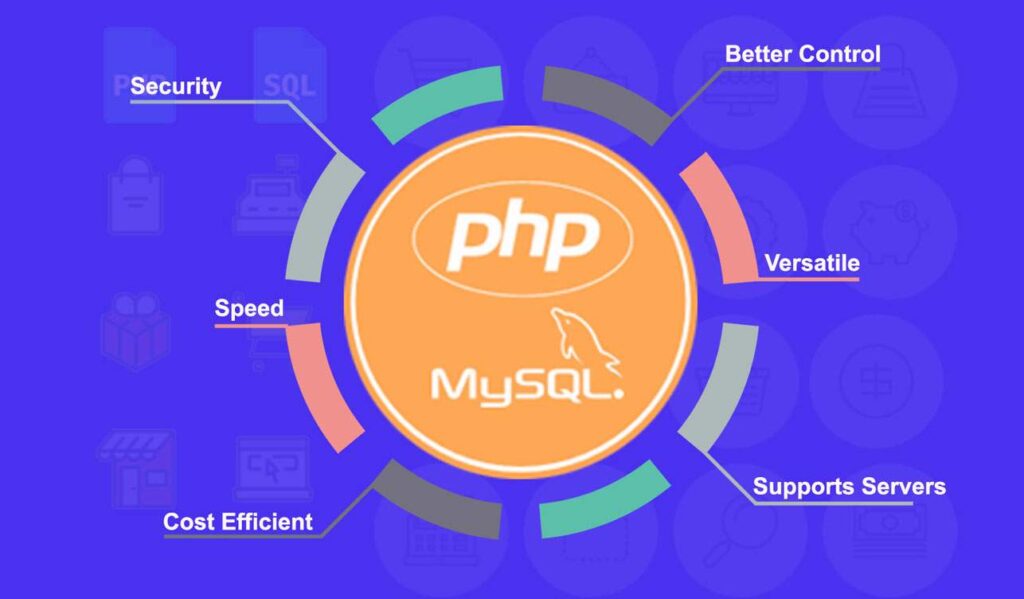
But Otwell saw what others missed:
Deployment Simplicity: Unlike Rails or Node.js, PHP apps could run anywhere with minimal server configuration
Existing Infrastructure: The web was (and still is) powered by PHP through WordPress, legacy systems, and enterprise applications
Underestimated Potential: With most innovation happening elsewhere, PHP was ripe for modernization
“Everyone kept telling me PHP was dying,” Otwell says. “But I looked around and saw it running most of the web. The problem wasn’t the language – it was the tooling.”
This contrarian insight would become Laravel’s founding principle: modern developer experience meets PHP’s ubiquitous practicality.
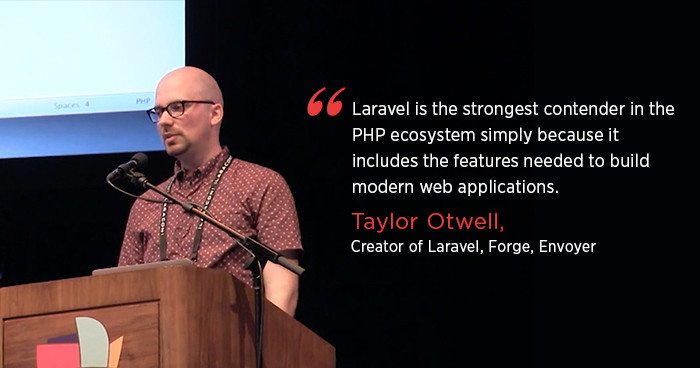
From Side Project to Open-Source Sensation
Laravel’s Humble Beginnings (2011): Solving One Developer’s Frustrations
The initial version of Laravel wasn’t conceived as a world-changing framework. Otwell built it simply to scratch his own itches as a working developer:
- Eliminating repetitive boilerplate code
- Simplifying common tasks like routing and authentication
- Creating sensible defaults that matched real-world usage patterns
“I never set out to build ‘the next big framework,’” Otwell emphasizes. “I just wanted to stop rewriting the same scaffolding for every project.”
This personal pain point orientation proved crucial. Because Laravel solved actual problems Otwell faced daily, it naturally resonated with other developers facing similar challenges. The initial open-source release gained traction purely through word-of-mouth among frustrated PHP developers.
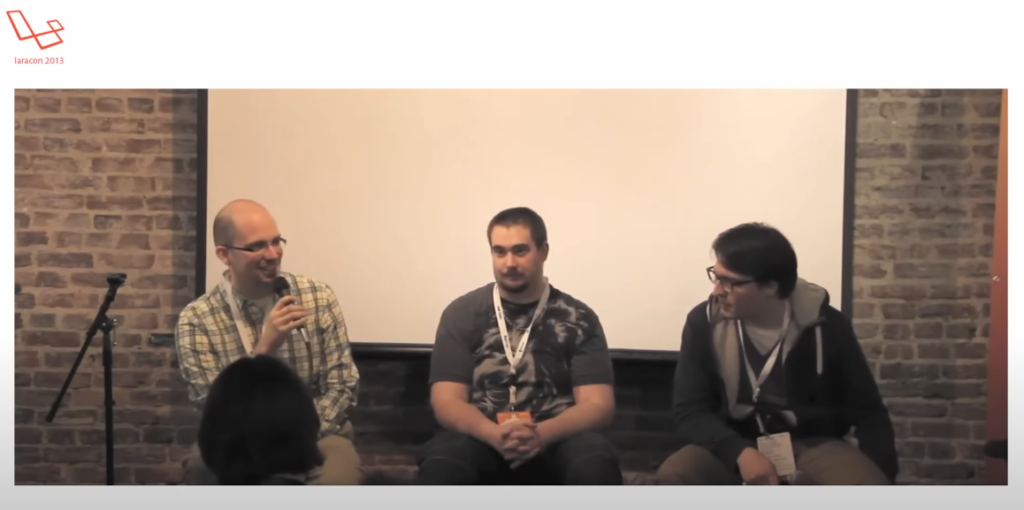
The Turning Point: Laravel Forge (2014) – When the Community Demanded Monetization
For three years, Laravel existed as a purely free, open-source project with no revenue model. Otwell maintained it nights and weekends while working full-time as a developer. Then something unexpected happened – users started begging to pay.
“The community kept asking for deployment tools,” Otwell recalls. “They wanted something like Heroku but optimized for Laravel apps.”
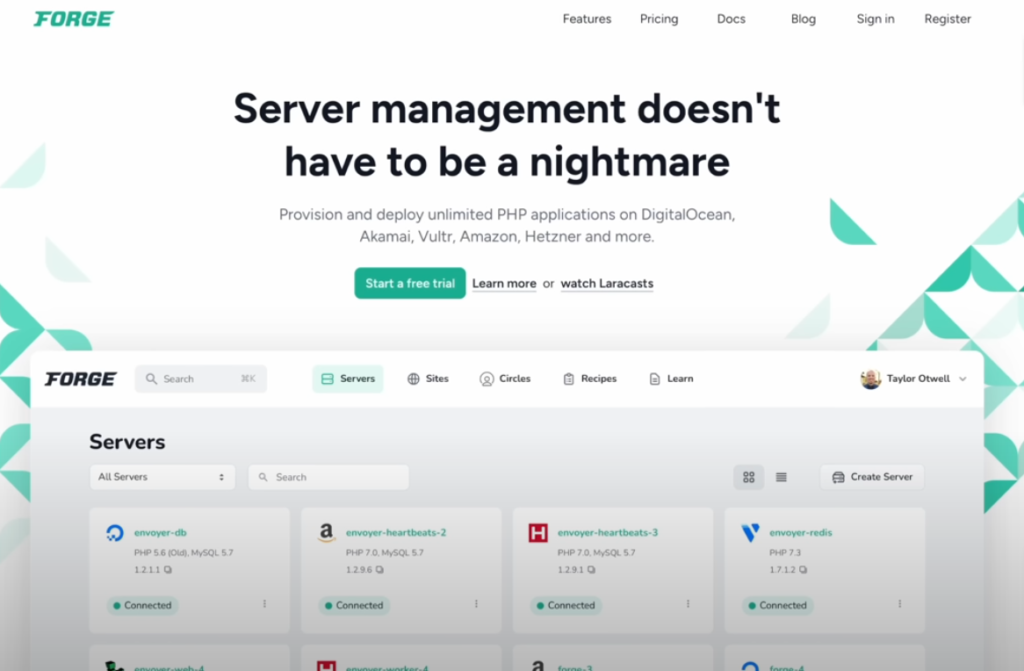
This led to Laravel Forge, a paid service that automated server provisioning and deployment. The development process reflected Otwell’s signature approach:
Solve Your Own Problem First: Built initially to deploy his own projects
Minimum Viable Product: Launched with just core functionality
Community-Driven: Refined based on user feedback loops
The result defied conventional startup wisdom. Without marketing or sales teams, Forge surpassed Otwell’s day job salary within months purely through organic demand from developers who already loved Laravel.
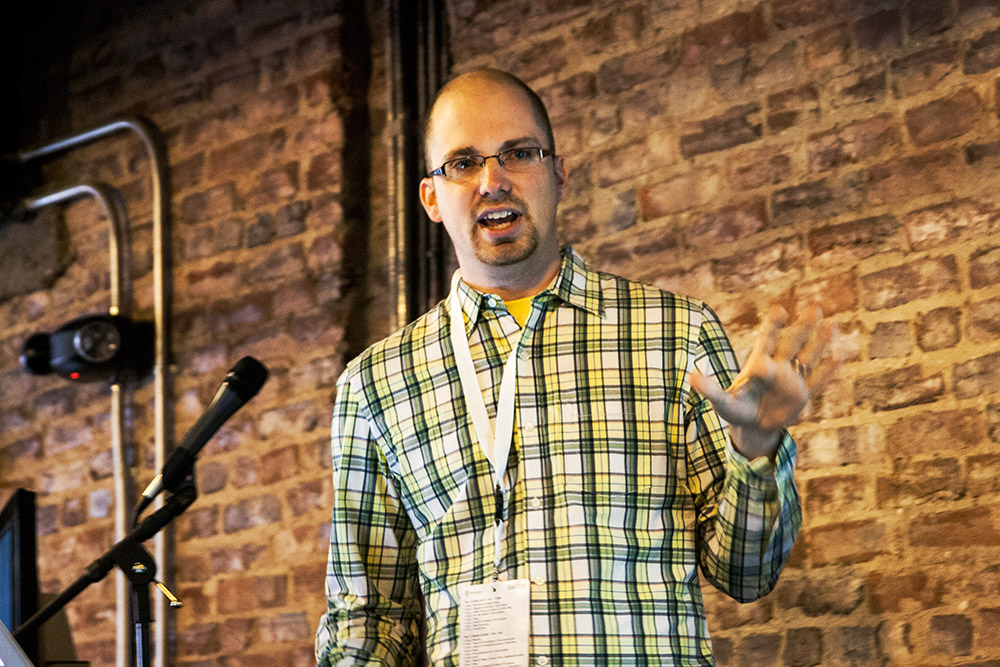
Bootstrapping to VC-Backed (Without Losing Control)
The Solo Founder Struggle: When Passion Meets Burnout
For years after Forge’s success, Otwell maintained what he now calls an “unsustainable” workload:
- Code: Maintaining core framework and commercial products.
- Support: Handling customer inquiries personally
- Community: Engaging in forums and documentation
- Operations: Managing servers, billing, and infrastructure
“I was protective to a fault,” he admits. “Laravel was my baby, and I didn’t trust anyone else with it.”
This solo mentality created bottlenecks. As Laravel’s popularity exploded, the strain of maintaining everything personally nearly led to burnout. The turning point came when Otwell realized his perfectionism was limiting Laravel’s potential.
Why He Finally Took VC Money (2021): Growth Without Compromise
In 2021, after a decade of bootstrapping, Laravel raised $20M+ from Accel. Crucially, this wasn’t a survival round but an acceleration play:
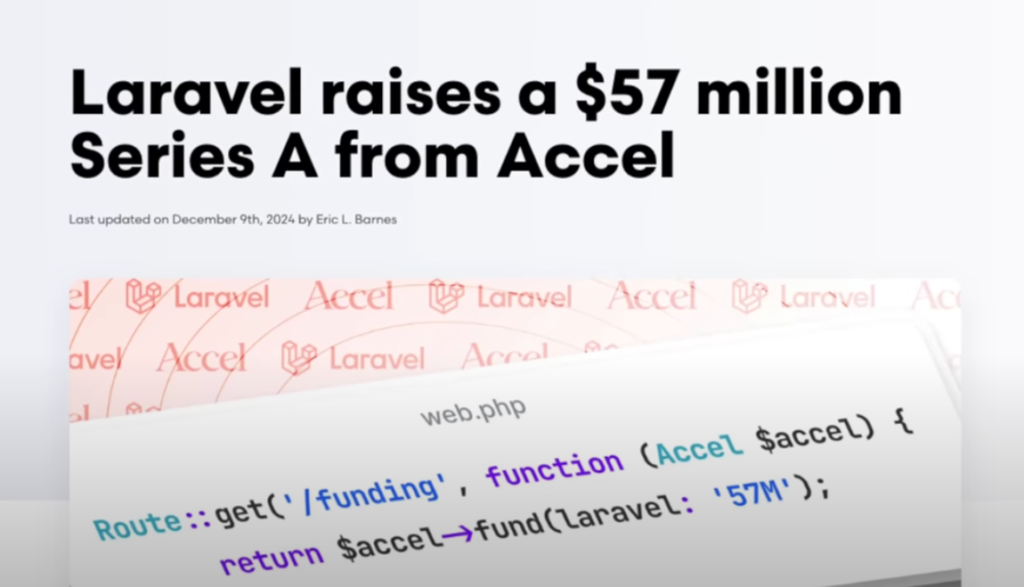
- Team Scaling: Hiring specialists in areas like DevOps and UI/UX
- Product Expansion: Building ambitious tools like Vapor (serverless PHP)
- Community Growth: Funding educational initiatives and events
Otwell’s approach to VC reflects his overall philosophy:
- Maintain Control: Kept majority ownership and product vision
- Strategic Alignment: Chose investors who understood developer tools
- Community First: Ensured commercial products served user needs
“VC wasn’t about changing who we were,” Otwell explains. “It was about becoming more of who we wanted to be.”
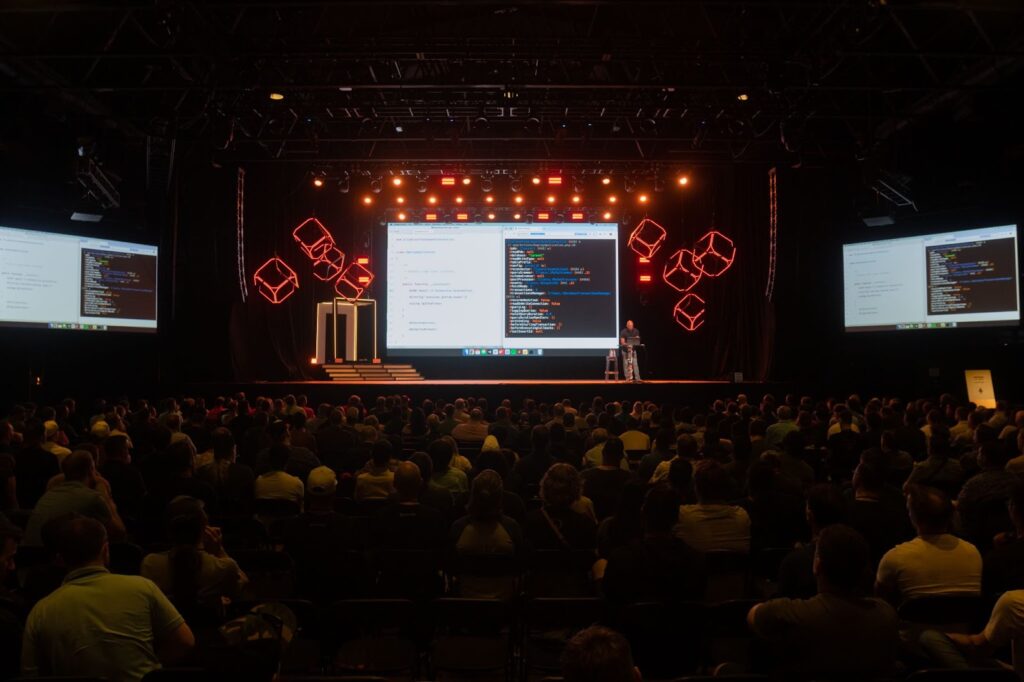
The Laravel Playbook—Why Developers Love It
1. “Play the Hits”: The Taylor Swift Rule for Open-Source
Otwell manages Laravel’s evolution using an unconventional metaphor: think like a musician nurturing a fanbase rather than a corporation chasing markets.
“Taylor Swift doesn’t suddenly make metal albums because critics say she should,” he explains. “She knows what her fans love and delivers more of that.”

This manifests in several key principles:
- Ignore Armchair Architects: “Some people will never be satisfied no matter what you build.”
- Double Down on Core Users: “The developers building businesses with Laravel guide our roadmap.”
- Evolution Over Revolution: “We improve incrementally without breaking what people love.”
2. “Do the Hardest Part First”: Reverse Engineering Success
Most developers follow a natural instinct when starting projects: begin with the easy, fun parts. Otwell does the opposite.
“When I have a new product idea, I immediately try to build the riskiest, most uncertain component first,” he says. This counterintuitive approach stems from hard-won experience:
- Motivation Matters: Tackle tough problems when energy and creativity peak
- Fail Fast: Discover showstoppers early rather than after months of work
- Momentum Building: Solving the hardest part first makes everything else feel easier
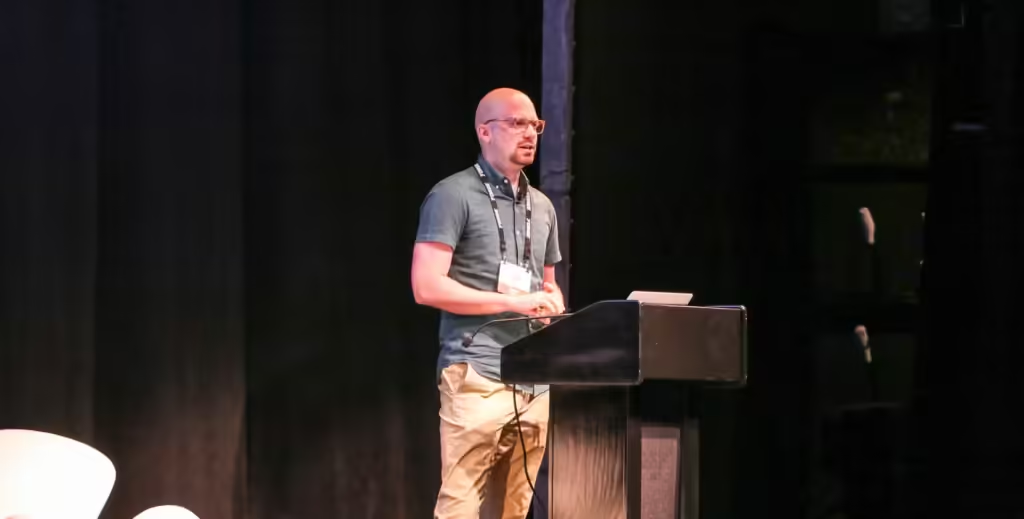
3. The “Average Developer” Philosophy: Coding for the 99%
Unlike frameworks designed to showcase technical brilliance, Laravel embraces a different ethos: make the average developer’s life better.
“I’m not some genius programmer,” Otwell states matter-of-factly. “I build tools for developers like me – people who just want to ship great products without unnecessary complexity.”
This focus on practicality over prestige explains Laravel’s widespread adoption:
- Clear Documentation: Tutorials written for real-world usage
- Sensible Defaults: Configurations that work out of the box
- Gradual Complexity: Advanced features available but not required
Laravel By the Numbers (2024)
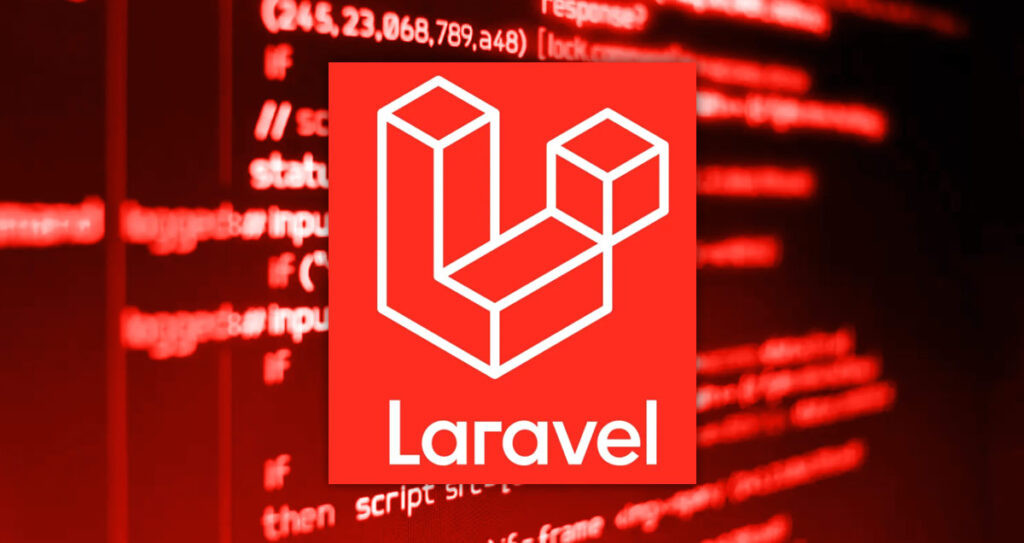
The Laravel ecosystem’s growth metrics tell a compelling story:
📈 250,000+ Daily Downloads: Consistent year-over-year growth since 2011
🌎 Global Reach: Used by developers in 190+ countries
💻 Community Strength: Over 1 million active developers
🎟️ Event Growth: Laracon attendance increased 10x (90 in 2013 → 900+ in 2023)
💰 Commercial Success: Multiple seven-figure revenue streams from ecosystem products
Final Lessons for Developer-Founders
1. “Solve Your Own Problems First”
Authentic pain points create better products than market research. Laravel succeeded because it solved real frustrations Otwell experienced daily as a working developer.
2. “Monetize Open-Source the Right Way”
Commercial products should emerge naturally from community needs (like Forge did) rather than being forced through artificial paywalls.
3. “Community > Code”
Laravel’s technical merits matter, but its welcoming culture and educational focus created loyal advocates who spread adoption organically.
4. “VC Money ≠ Selling Out”
Outside funding can amplify rather than dilute your mission if aligned properly with investor partners who share your vision.
5. “Stay in Arkansas (If You Want)”
Tech success isn’t confined to traditional hubs. Distance from Silicon Valley groupthink can foster unique perspectives and innovations.


Leave a Reply